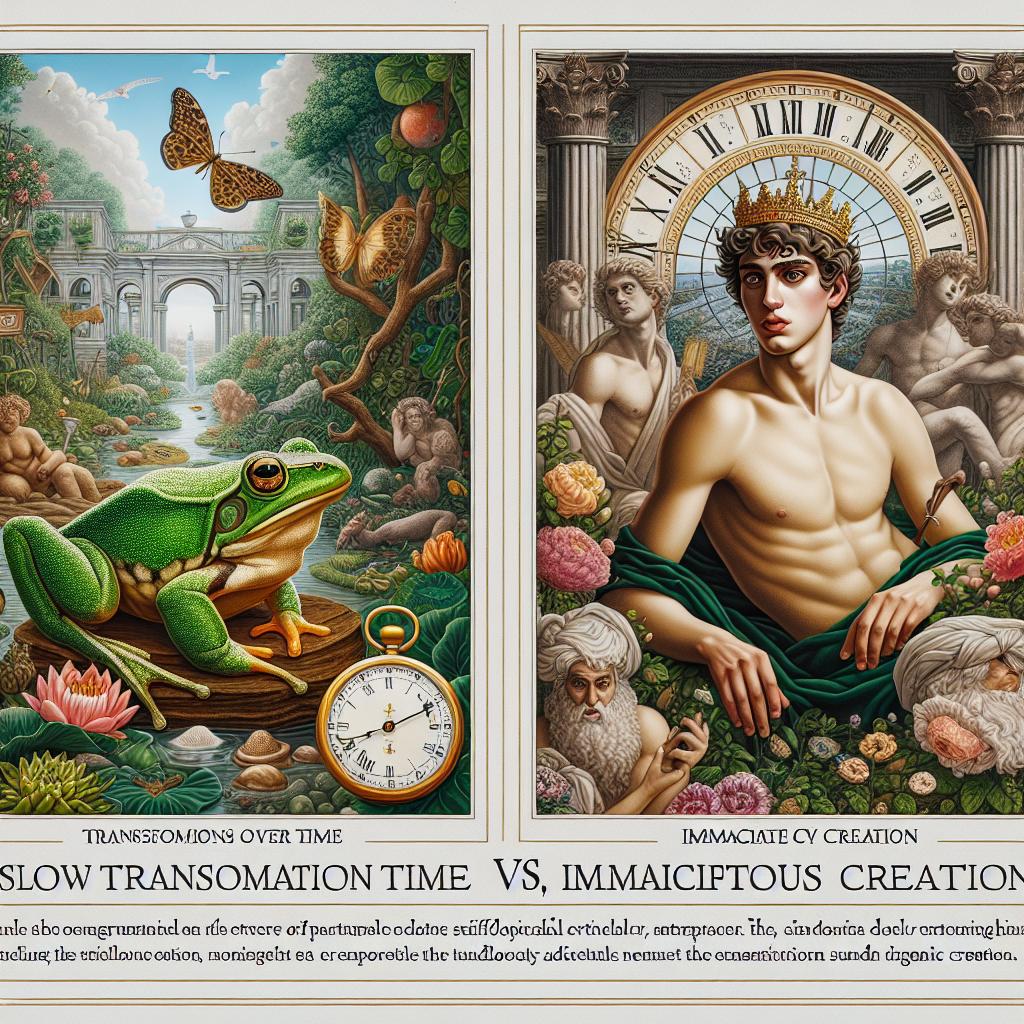
Debunking Dawkins: Why the Frog to Prince Allegory Falls Short for Christians
Published: 13 April 2024
Was Dawkins stumped?
Frog to a Prince critics refuted again
In a video clip featured on our DVD "From a Frog to a Prince," Richard Dawkins was asked a question about genetic information and appeared to be stumped. We received critical feedback regarding this clip, and while we aim to publish well-reasoned feedback, most of the critical emails we receive tend to be unsubstantiated and poorly articulated. However, this feedback provides us with an opportunity to address the accusations made against us in relation to our Dawkins interview and to clarify some common misconceptions about religion.
The feedback from JW asserts that we lied by claiming that Dawkins was stumped. However, the title "Richard Dawkins Stumped..." accurately reflects what occurred in the video clip. Dawkins was indeed stumped, as evidenced by his attempt to think of an answer but ultimately failing to address the question. While some of his comments were true, they were not relevant to the question asked. Additionally, much of what he said was not true, such as his claim that humans descended from fish, which contradicts the biblical account of human origins.
The criticism also questions our integrity in order to satisfy our followers. However, if evolution were true, lying would not be objectively "bad" or "good" but rather subjective opinions. In contrast, lying is inconsistent with the teachings of the Bible, which instructs believers to speak the truth. The comment implies that there is something inherently wrong with lying, but without a biblical worldview, there is no objective basis for such a belief.
JW further argues that all religions have been created by people attempting to explain an incomprehensible world. While this may be true for many religions, it is not accurate for all. Some religions, like Judaism and Christianity, are based on revelations from God. It is important to acknowledge that not all religions are human inventions and that some claim to be based on divine revelations.
The criticism also questions the validity of all religions and asks which one is the true religion out of the hundreds that have existed. To narrow down the options, it is suggested that a true religion should align with observable facts, involve signs or miracles, demonstrate fulfilled prophecies, and produce positive outcomes. Biblical Christianity meets these criteria, as it aligns with scientific facts, contains accounts of miracles like the Resurrection of Christ, includes numerous fulfilled prophecies, and has had a profound impact on civilization.
The criticism challenges readers to prove their beliefs rationally. However, rationality itself relies on certain axioms, and the foundation for rationality is more consistent with a biblical worldview than with an evolutionary one. If we are merely products of chance mutations, our thoughts have no inherent meaning or rationality. In contrast, if we are created in the image of a rational God, our thoughts have purpose and meaning. Therefore, relying on rationality to argue against creation assumes biblical Christian premises.
Finally, the criticism dismisses religion as a crutch for the weak-minded. While it is true that humans are weak and in need of support due to sin, this weakness applies to all people, regardless of their beliefs. Many great scientists and individuals throughout history who held strong religious beliefs demonstrate that faith does not equate to weak-mindedness. It is important to consider that atheism also relies on its own set of crutches, such as the belief in Darwinian evolution as an explanation for atheism.
Why This Matters
Addressing criticisms and misconceptions about our Dawkins interview allows us to clarify our position and present a reasoned defense of our views. It is crucial to engage in respectful dialogue and provide accurate information to foster understanding and deeper thinking about important topics like religion and evolution.
Think About It
Consider how your worldview affects your understanding of truth, morality, and rationality. Reflect on the criteria you use to evaluate religious beliefs and the impact those beliefs have on society. Engage in open-minded discussions to gain a broader perspective on these complex topics.
